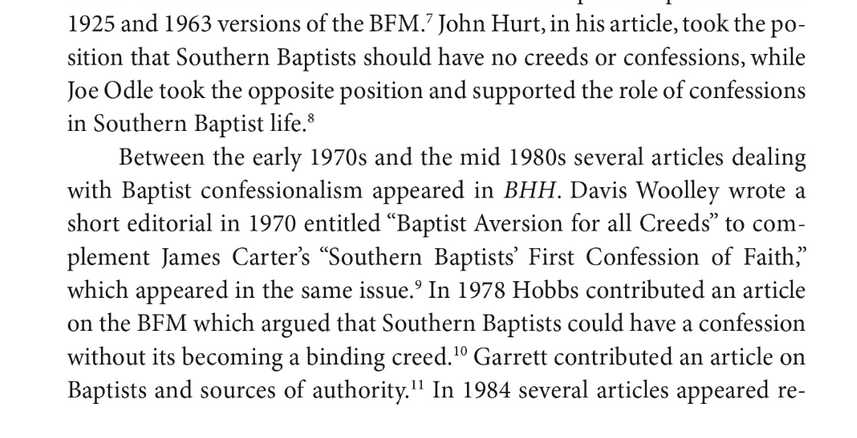
The day the BFM2000 was revised:
"We would never presume to tell another church whom they may call as a pastor..." --Al Mohler
"We don’t have the right, the authority or the power to limit anybody... It is a statement of what most of us believe." -- Adrian Rogers
"We would never presume to tell another church whom they may call as a pastor..." --Al Mohler
"We don’t have the right, the authority or the power to limit anybody... It is a statement of what most of us believe." -- Adrian Rogers

And from the Orlando Sentinel.
This is, of course, a year or two before the CBF was driven out of the SBC. College Park Baptist Church was itself disfellowshipped from the SBC in 2021.
This is, of course, a year or two before the CBF was driven out of the SBC. College Park Baptist Church was itself disfellowshipped from the SBC in 2021.

And from the New York Times.
"Individual Southern Baptists and the faith's 42,000 congregations would remain free to ordain women and hire them as pastors."

"Individual Southern Baptists and the faith's 42,000 congregations would remain free to ordain women and hire them as pastors."
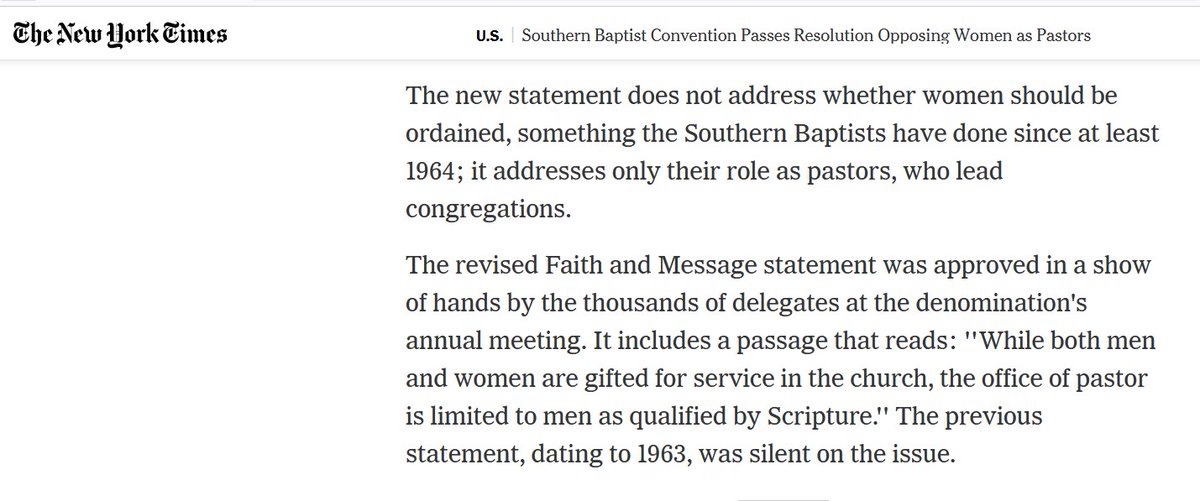

Paige Patterson: the BFM2K is "not a creed," only something "generally believed," and he would still be in fellowship with someone who only affirmed the BFM1968 
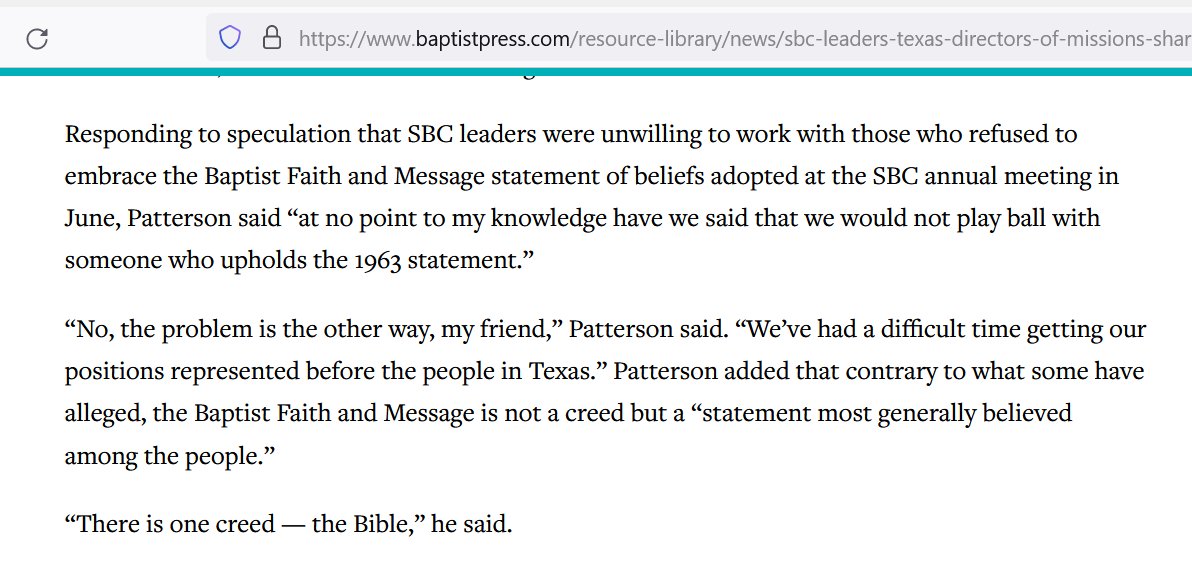
The Executive Committee in 2000, saying the new BFM would not be used "in a new way" "to coerce," but that it was only a "consensus of opinion." 
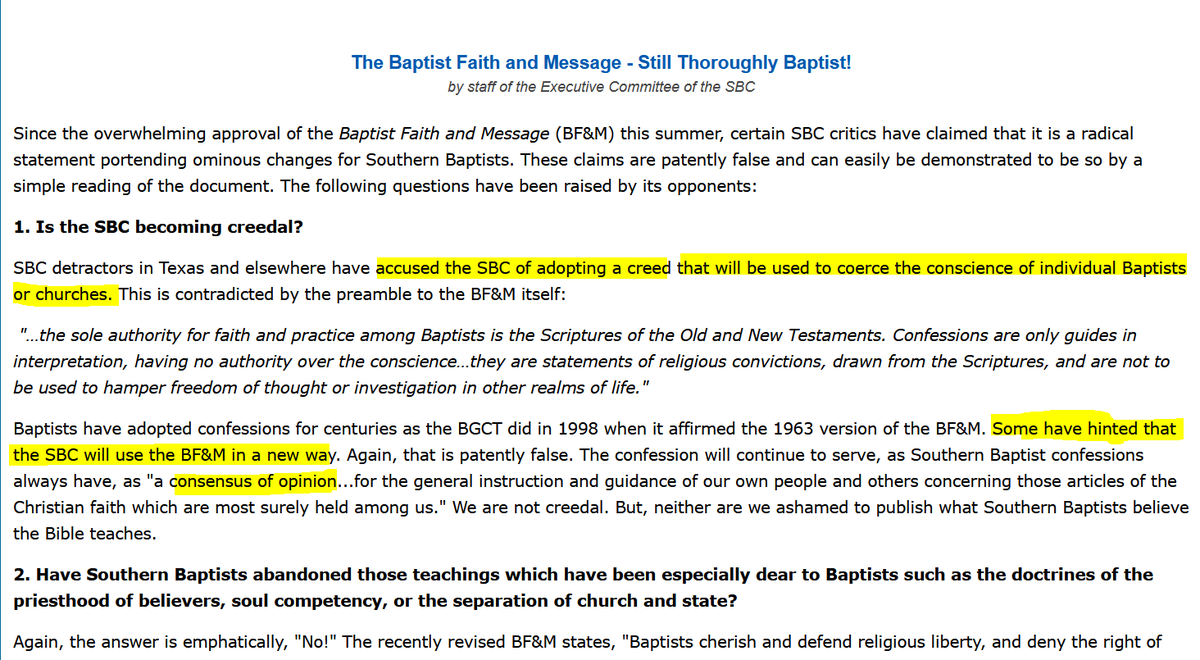
In 2001, three NAMB employees resigned rather than affirm the BFM 2000.
Martin King, NAMB’s director of convention relations, said this, to explain how NAMB had a right to require its employees to affirm the BFM -- even though churches were free from that expectation.
Martin King, NAMB’s director of convention relations, said this, to explain how NAMB had a right to require its employees to affirm the BFM -- even though churches were free from that expectation.

November 2000 -- John Sullivan had this to say as the Florida Baptist Convention adopted the BFM2000.
The Tennessee Baptist Convention didn't even adopt the BFM2000, they just “acknowledge” the BFM “as a source of information in assisting believers to express their faith.”
The Tennessee Baptist Convention didn't even adopt the BFM2000, they just “acknowledge” the BFM “as a source of information in assisting believers to express their faith.”
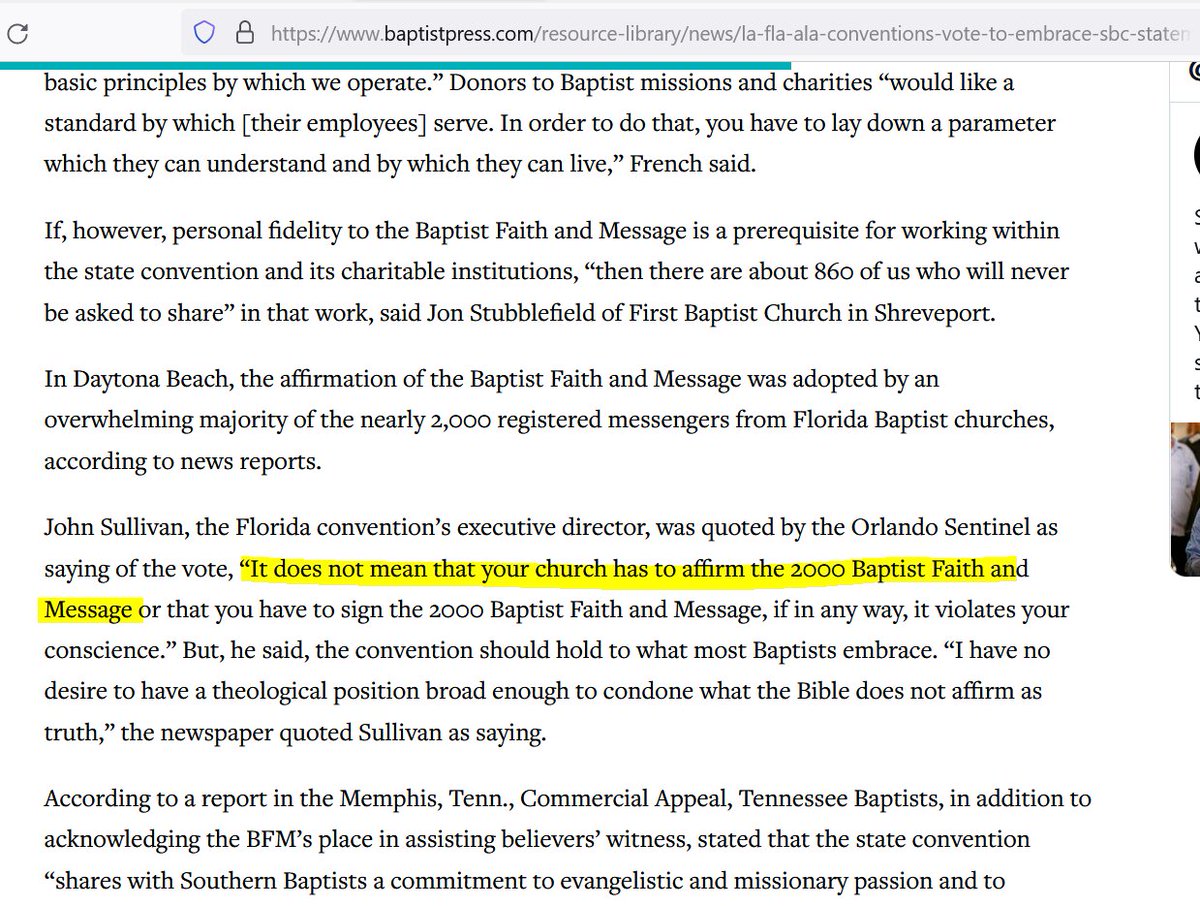
November 2000 -- the Arkansas Baptist State Convention actually *shot down* adoption of the BFM2000 at first, and the floor discussion was over ways this new document might be used as a "litmus test." 
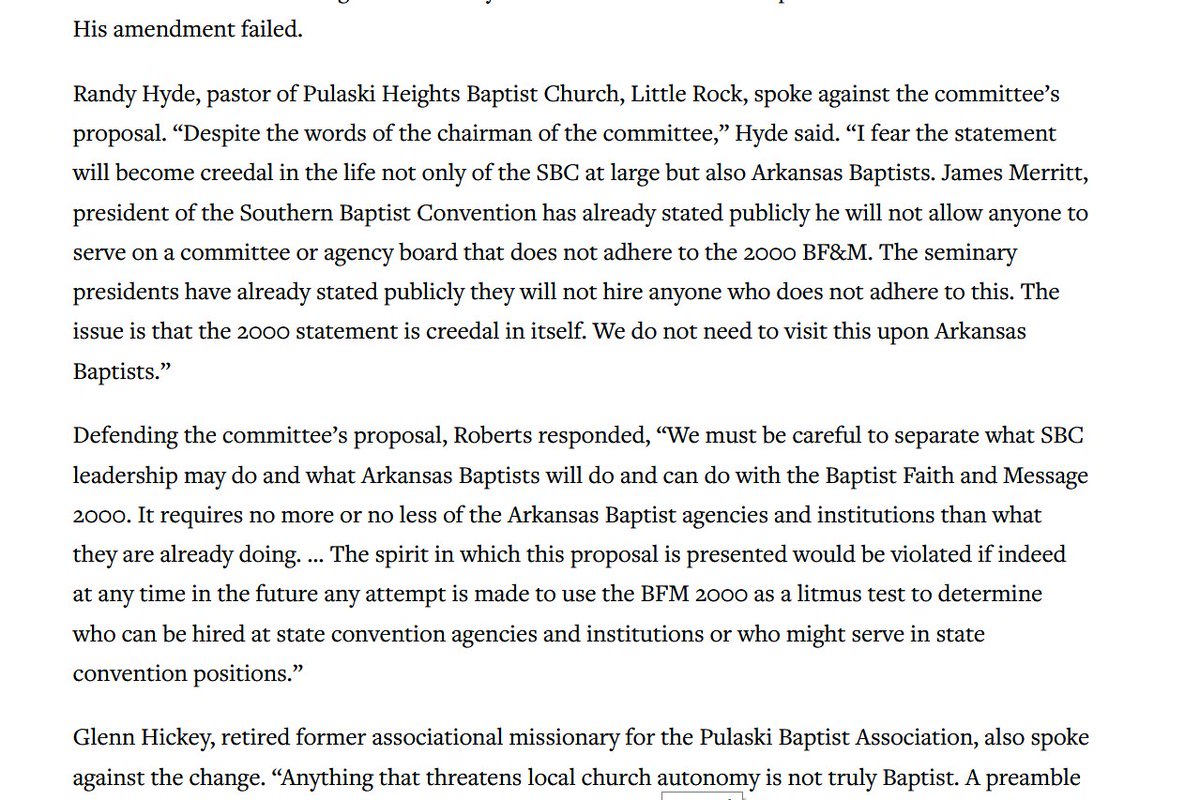
This from Bill Merrell, vice president for convention relations with the SBC Executive Committee, responding to First Baptist of Oklahoma City leaving the SBC over the BFM2000 in 2001: 

• • •
Missing some Tweet in this thread? You can try to
force a refresh



